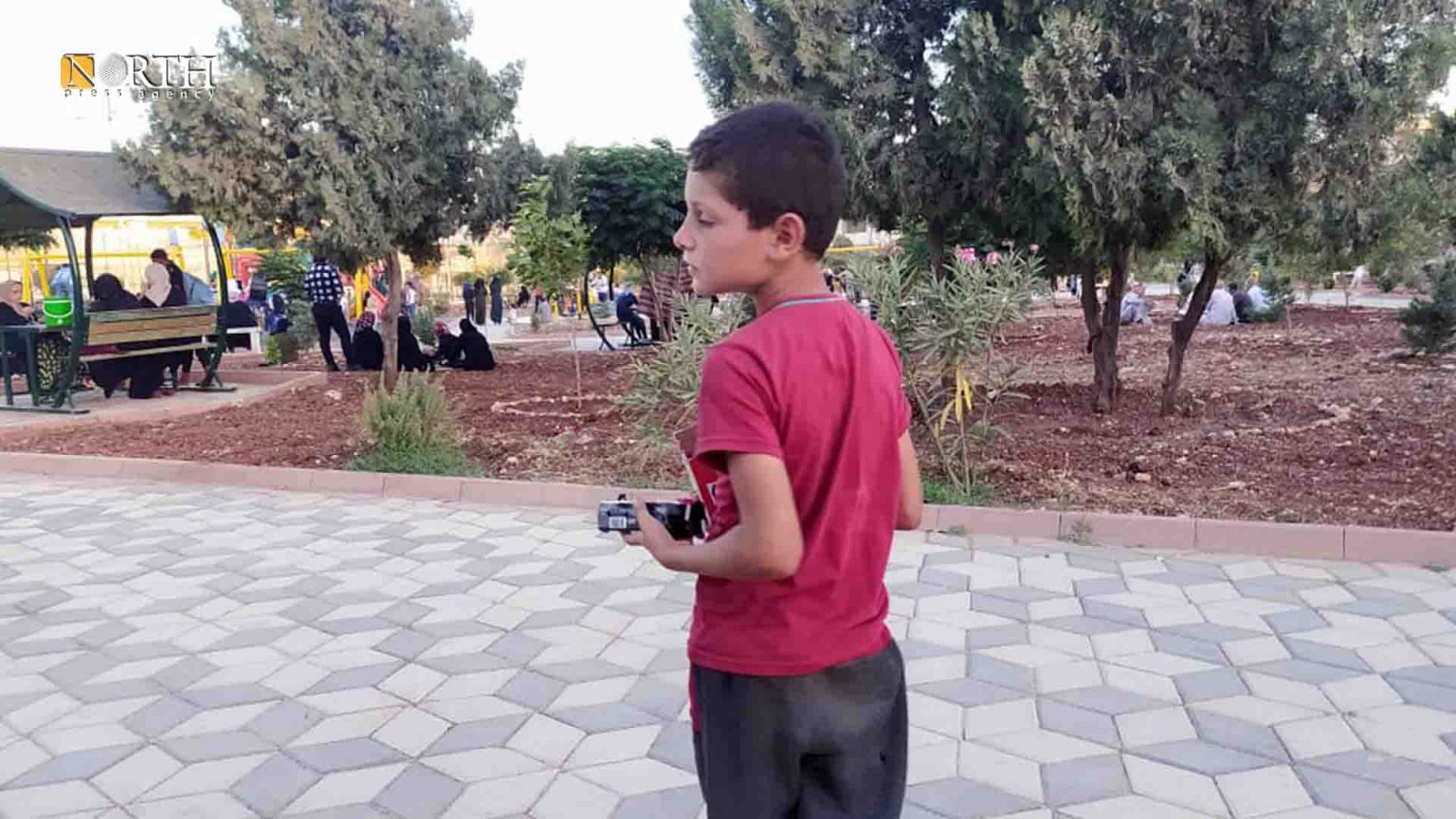In Syria’s Turkish-held northern town of Azaz, 13-year-old Ahmed Husseini sells biscuit to feed his sick mother and little brothers and sisters.
Husseini was displaced from the town of Misraba in Eastern Ghouta near Damascus six years ago after his school was bombarded in airstrikes by Syrian government and Russian warplanes.
“Many teachers in my school were killed and many children were saved because they were not attending schools at that time fearing airstrikes,” he said.
Husseini with thousands of children were displaced from Damascus and Idleb and found themselves in camps in the northern countryside of Aleppo.
Husseini said he and many children who are living in camps and villages don’t go to school and sell biscuit and tissues to feed their families.
“I don’t know how to write my name and I have forgotten the alphabet I learned about six years ago,” he said.
Every morning, Husseini and dozens of his friends travel from camps and the countryside to Azaz’s markets and streets to earn some money and buy food for their families.
Husseini is the only breadwinner in his family after the death of his father in an airstrike.
Child labor has become something normal in Azaz and other Syrian cities, as a result of the deteriorating living situation, and lack of interest in the education sector as a result of the war.
Hassan Hamish, an 11-year-old child, displaced from south of Hama, works with his father in a motorcycle repair shop, in Azaz city.
“I can’t spell my name”, said Hassan sadly, as he helped his father repair a motorcycle.
Raged Mazloum, a teacher, said poverty was the main reason for child labor.
“Making a child a source of income is unacceptable and will have disastrous results when they grow up,” she said.
This article was edited by The Syrian Observer. The Syrian Observer has not verified the content of this story. Responsibility for the information and views set out in this article lies entirely with the author.


